Russia, Ukraine trade blame after fire at Europe's largest nuclear power plant
Ukrainian authorities say Russian forces seized the largest nuclear power plant in Europe Friday after a building at the complex was set ablaze during intense fighting.
Fears of a potential nuclear disaster at the Zaporizhzhia plant spread alarm across world capitals, before authorities said the fire in a building identified as a training center, had been extinguished.
Ukraine’s president accused Russia of resorting to “nuclear terror” and seeking to repeat the Chernobyl disaster after saying that Russian forces attacked a nuclear power plant.
Russia's defense ministry, however, blamed the attack at the site on Ukrainian saboteurs, calling it a monstrous provocation.
Earlier, in a video message, President Volodymyr Zelensky urged world leaders to prevent Europe from “dying from a nuclear disaster”.
US Energy Secretary Jennifer Granholm said there was no indication of elevated radiation levels at the Zaporizhzhia plant, which provides more than a fifth of the total electricity generated in Ukraine.
Local officials also said that essential equipment at the station was unaffected and radiation levels were normal.
An official at the state enterprise that runs Ukraine's four nuclear plants said there was no further fighting, the fire was out and Zaporizhzhia was operating normally.
“(Nuclear power plant) personnel are on their working places providing normal operation of the station.”
A video from the plant showed one building aflame, and a volley of incoming shells. The head of the International Atomic Energy Agency said Ukrainian authorities had assured the IAEA that "essential" equipment were unaffected.
Russia has already taken control of the Chernobyl plant, about 100 km north of Kiev, which has been one of the most radioactive locations on earth since it saw an explosion in its fourth reactor in April 1986.
Financial markets in Asia spiraled out of control as early reports of the incident emerged, with stocks falling and oil prices soaring further.
"Markets are worried about nuclear fallout. The risk is that there is a miscalculation or over-reaction and the war prolongs," said Vasu Menon, executive director of investment strategy at OCBC Bank.
Top Russian general killed
As fighting intensifies in Ukraine, reports emerged that top Russian general, Major General Andrey Sukhovetsky, has been killed by a Ukrainian sniper.
Sukhovetsky, 41, was deputy commander of the 41st Combined Army of Russia’s Central Military District. The highly decorated veteran commanded the 7th Airborne Assault Division in Novorossiysk for three years.
While Russia has not confirmed Sukhovetsky’s death so far, one of his colleagues, Sergey Chipilyov, announced on social media the major general’s death.
On Wednesday, the Kremlin announced that 498 Russian soldiers had been killed and 1,597 others wounded since the beginning of Moscow’s military operation in Ukraine. However, Kiev claims Russia’s army suffered around 9,000 casualties during the military conflict.
One Ukrainian city, the southern port of Kherson, has fallen to Russian forces since the Russian operation was launched on Feb. 24.
In an intelligence update on Friday, Britain said the southeastern port city of Mariupol has been encircled by Russian forces.
The northeastern city of Kharkiv has also been the scene of fighting since the start of the operation, but Ukraine says its defenders are holding out in the city.
In Washington, a US defense official said Russian troops were still 25 km (16 miles) from Kiev city center.
US dismisses talk of banning Russian oil
On Friday, US President Joe Biden spokes with Zelensky after the nuclear power incident, but the White House dismissed the idea of banning Russian oil imports due to the fact that it could further spike the already high price of gas for the American people.
“We don’t have a strategic interest in reducing the global supply of energy,” White House press secretary Jen Psaki said. “And that would raise prices at the gas pump for the American people, around the world, because it would reduce the supply available.”
“And it’s as simple as: Less supply raises prices. And that is certainly a big factor for the president in this — at this moment,” she added.
European Council president: No-fly zone ‘one step too far’
European Council President Charles Michel said the European Union does not agree with NATO’s decision to enforce a no-fly zone over Ukraine.
Michel said the move would be “one step too far” with a “real risk of escalation and a real risk of a possible third international war.”
“The EU is not at war with Russia,” he told CNN. “Ukraine is not a NATO member, and that’s why we must be extremely careful and cautious.”
He maintained that the European Union needs to do everything which is possible, “but taking into account that Russia has nuclear weapons, and it is very important to avoid a third international war.”
Zelensky has been calling for NATO and Western allies to enforce a no-fly zone over Ukraine amid the military conflict. However, the request has not been met yet.
Lithuanian Prime Minister Ingrida Simonyte also said any calls for NATO to enforce a no-fly zone in Ukraine would be irresponsible and could drag the
military alliance into direct conflict with Russia.
"I believe that all encouragements for NATO to get involved into the military conflict now are irresponsible," Simonyte told a news conference in Vilnius on Friday.
Romania's Foreign Minister Bogdan Aurescu, however, said NATO must adapt military posture at its eastern flank to new reality, without spelling out if he wanted permanent presence of allied troops there.
"We have to adapt the posture to the reality, which shows that the Russians troops are in Ukraine and in Belarus, so we need to rethink everything," he told reporters as he arrived for a meeting of NATO foreign ministers in Brussels.
Romania, he said, will increase its defense spending to 2.5% from 2% of GDP starting with the next fiscal year.
Canada calls for 'all scenarios'
Canada wants NATO to discuss all scenarios to isolate Russia, the country's foreign minister Melanie Joly said on Friday when asked whether the alliance
should consider a no-fly zone.
On her arrival at the extraordinary meeting of NATO foreign ministers, Joly said that NATO's red line was to avoid triggering an international conflict. But then she added: "we want to make sure that scenarios are being discussed".
British Prime Minister Boris Johnson said Putin’s “reckless actions” could now “directly threaten the safety of all of Europe.”
During a phone call with Zelensky, Johnson also said that the UK would “do everything it could to ensure the situation did not deteriorate further.”
“Russia must immediately cease its attack on the power station and allow unfettered access for emergency services to the plant,” Johnson said on Twitter after his early morning call, which took place shortly after the fire incident.
The British premier has said that he will seek an emergency UN Security Council meeting.
US senator calls for Putin’s assassination
Hawkish US Senator Lindsey Graham publicly called for “somebody in Russia” to assassinate Russian President Vladimir Putin to put an end to the conflict.
“How does this end? Somebody in Russia has to step up to the plate... and take this guy out,” the senator told conservative Fox News TV host Sean Hannity.
He later repeated the call in a series of tweets, saying, “The only people who can fix this are the Russian people. Easy to say, hard to do.”
“Is there a Brutus in Russia? Is there a more successful Colonel Stauffenberg in the Russian military?” he asked, referring to one of Roman ruler Julius Caesar’s assassins and a German army officer known for his failed attempt to assassinate Adolf Hitler, respectively.
Graham, who called on Israel to assassinate more Iranian scientists last months, went on to say that “the only way this ends is for somebody in Russia to take this guy out. You would be doing your country – and the world – a great service.”
Iran: War never a solution
Iran’s Foreign Minister Hossein Amir-Abdollahian said on Thursday that “war is not a solution to the Ukraine crisis or any other crisis” in the world.
Speaking on the phone with his Irish counterpart Simon Coveney, Amir-Abdollahian referred to NATO’s provocative actions and its eastward expansion as the root cause of the Ukrainian issue.
“The Ukraine crisis is rooted in NATO’s provocative actions,” he said.
“We do not regard resorting to war as a solution. Establishing a ceasefire and focusing on a political and democratic solution is a necessity,” the chief Iranian diplomat added.
Czechs to give impunity to nationals fighting for Ukraine
Czech nationals will be given impunity if they want to join Ukraine’s defense forces to fight against Russian forces, Czech Prime Minister Petr Fiala said on Thursday.
Fiala said after talks with President Milos Zeman that they had agreed to guarantee impunity for those who join Ukraine forces.
Under Czech law, the country’s nationals are prohibited from joining foreign armed forces without an exemption from the president who is the commander-in-chief of the Czech army. Violations are punishable by up to five years in prison.
Earlier this week, CTK news agency reported that at least 300 people had sought an exemption to answer Ukraine’s call for foreign volunteers.
In a statement on Saturday, the NATO member’s chief prosecutor warned that expressing support for Russia’s military action against Ukraine could be a criminal offense punishable by imprisonment.
Publicly backing the Russian invasion of Ukraine might be subject to custodial sentences of up to three years, Supreme State Attorney Igor Striz said.
Senegal: Recruitment punishable by law
However, Senegal’s Foreign Ministry denounced as illegal the Ukrainian embassy’s call for Senegalese volunteers to join its fight against Russia.
In a statement, the Senegalese ministry said the recruitment of volunteers, mercenaries, and other foreign fighters is illegal in Senegal and punishable by law.
Senegal was among 17 African countries that abstained from a UN vote rebuking Russia’s military action against Ukraine and calling on Moscow to immediately withdraw its forces.
Syria: West worsening crisis by sending lethal weapons to Ukraine
Syria’s permanent representative to the UN in Geneva reacted to the flow of missiles and lethal weapons to Ukraine, saying such moves by the Western powers while imposing sanctions against Russia aim to escalate the crisis.
“Human rights council’s assuming of its role in protecting and boosting human rights should be based on cooperation and dialog, and should adhere to principles of non-selectivity and objectivity away from any politicization,” Ambassador Hussam al-Din Ala said at a dialogue session about Ukraine during the 49th round of Human Rights Council.
He added that Syria doesn’t see the session or the politicized draft resolution submitted to it as a rightful basis to deal with human rights concerns in Ukraine in a comprehensive or fair way, calling on member states to stop such “politicized method.”

Russia may expand nuclear capability to counter US efforts: Russian diplomat
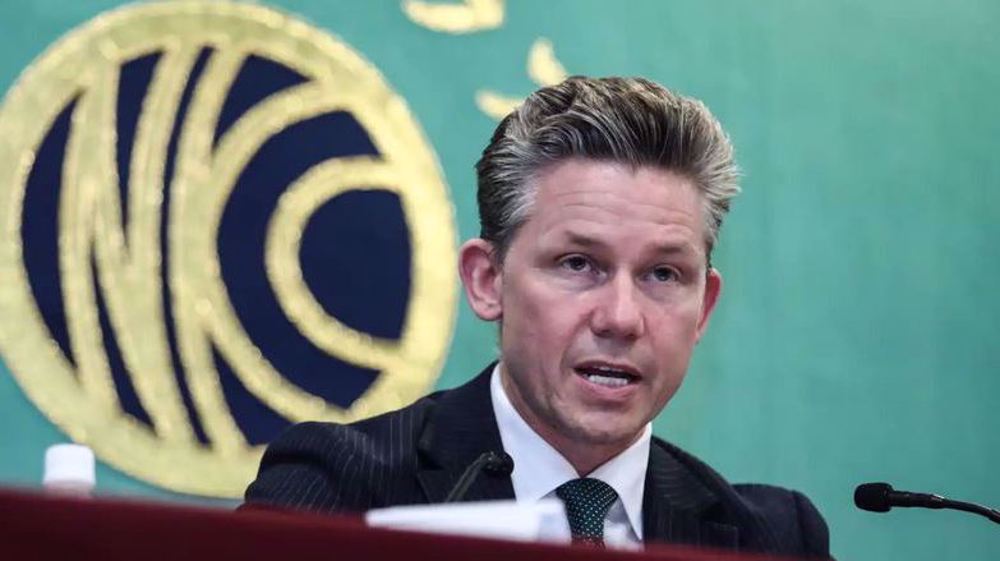
Sweden to give Ukraine $1.2bn in military aid
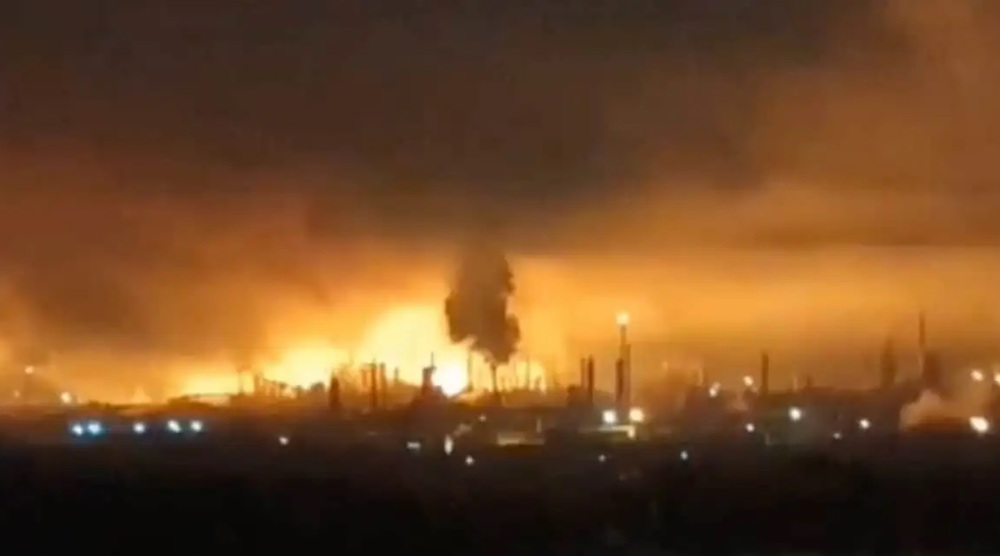
Russia’s nuclear power plant, oil depot targeted in Ukrainian drone attack: Report
VIDEO | Iran unveils new satellites, one missile to mark National Space Tech day
VIDEO | Press TV's news headlines
VIDEO | Amman ceremony hails martyred resistance leaders
VIDEO | Pro-Palestine activists, Muslims, target of ‘lawfare’
VIDEO | Lebanese resilience: 'We will never forsake our land'
Eslami: Iran's nuclear program completely transparent
VIDEO | Gazans describe life in war-ravaged strip
UN: Attacking women part of Israel’s systematic genocide


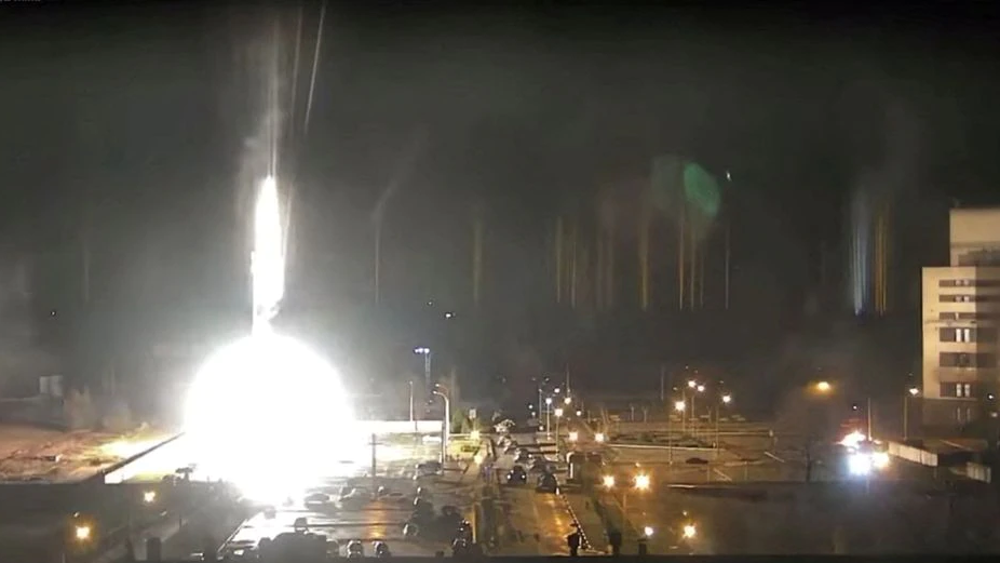
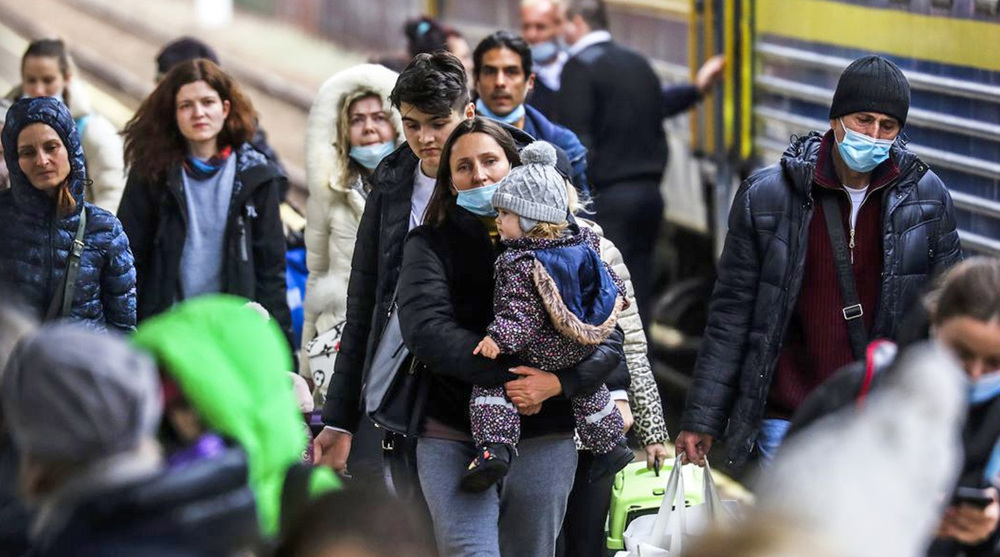
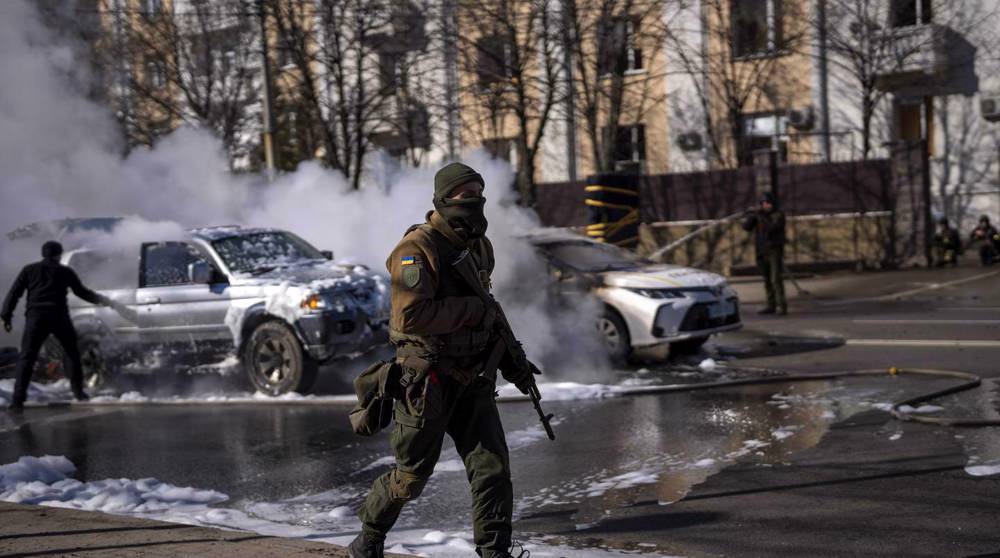
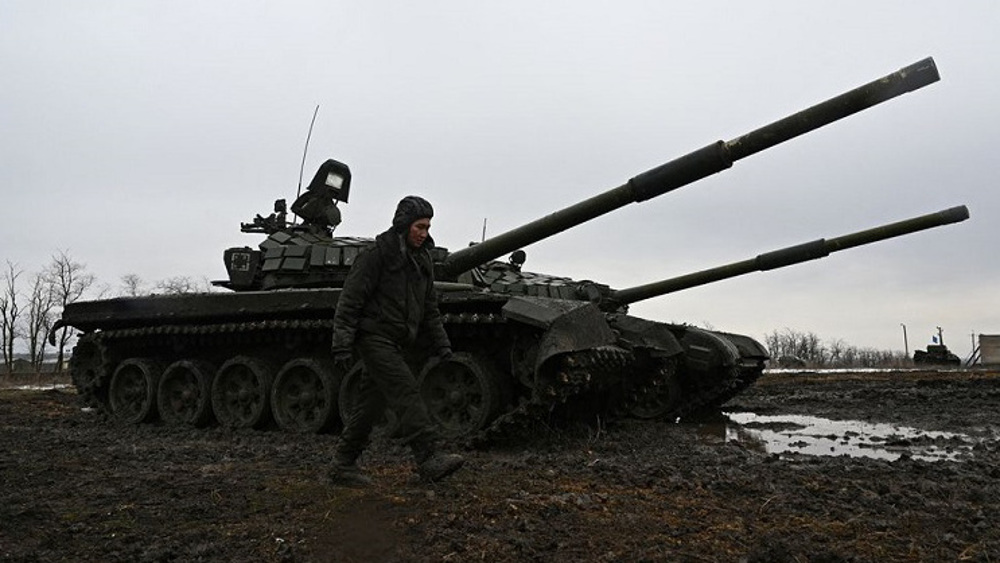
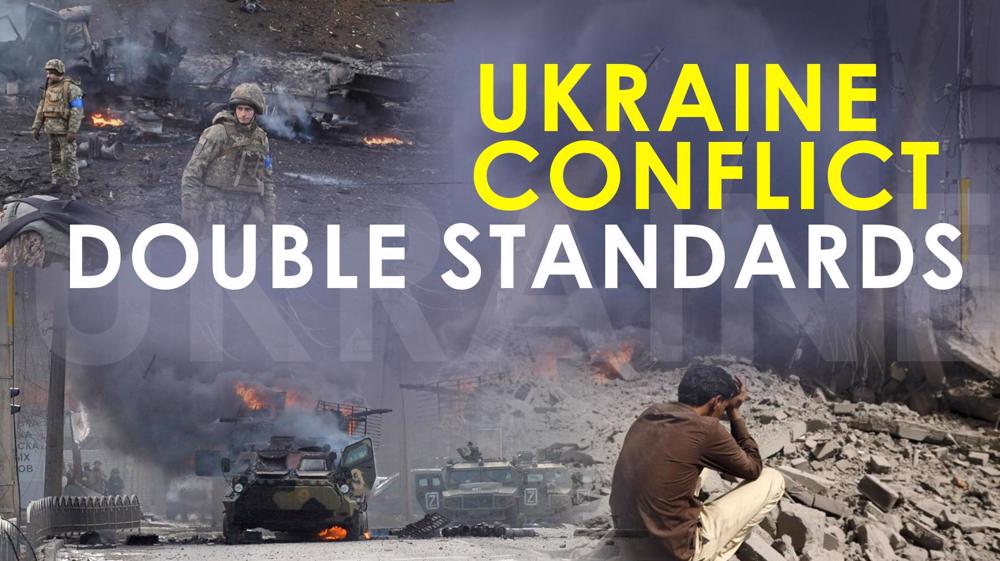



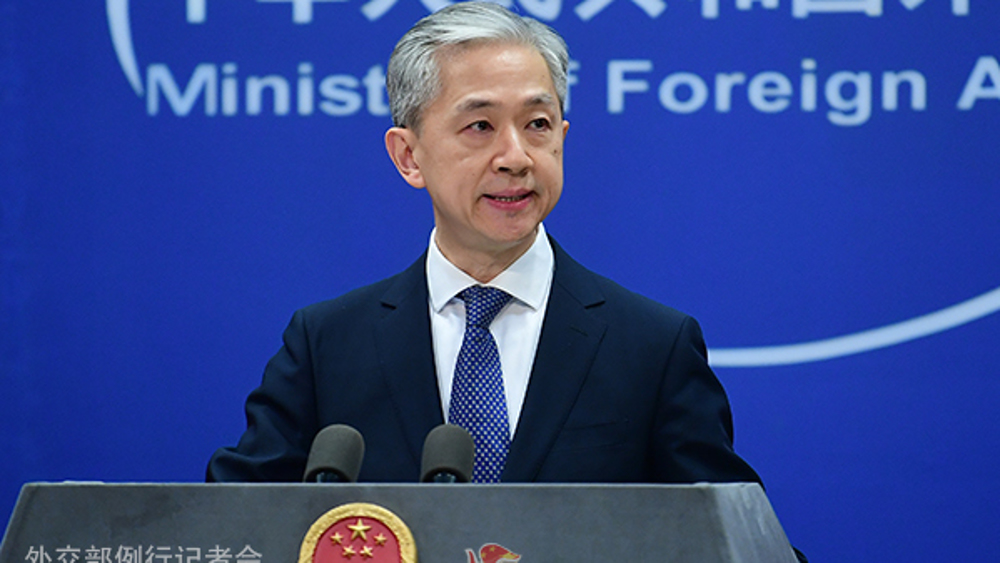
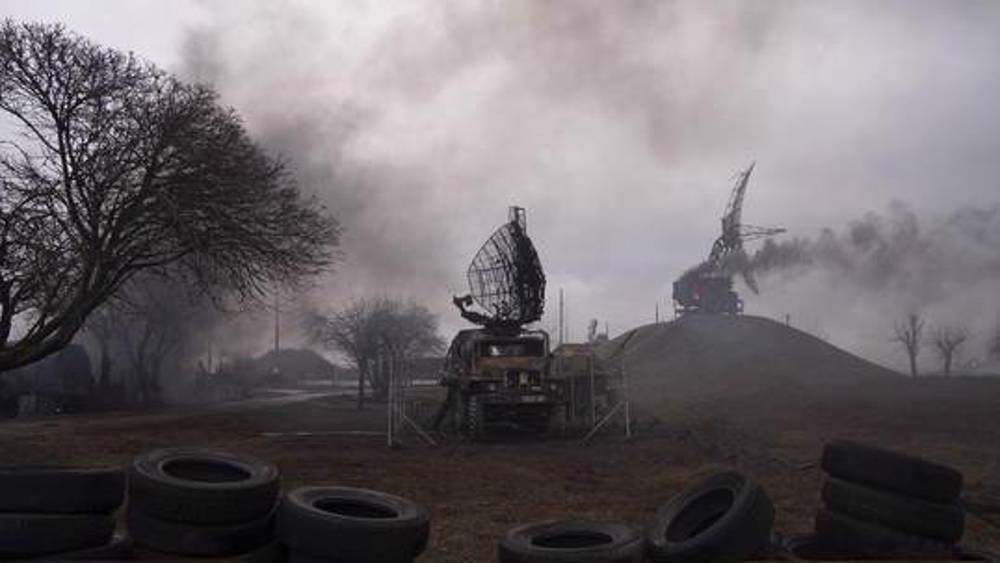
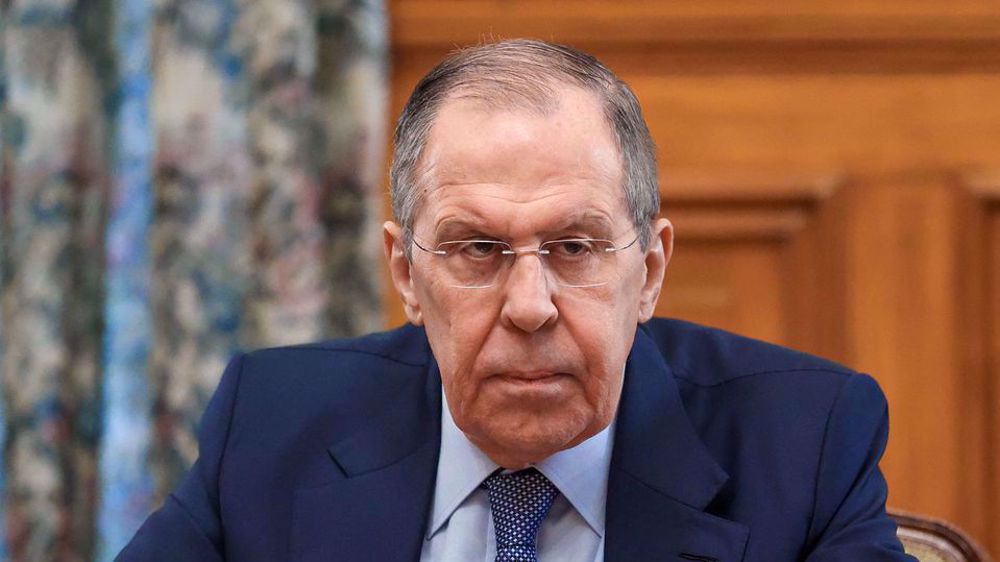
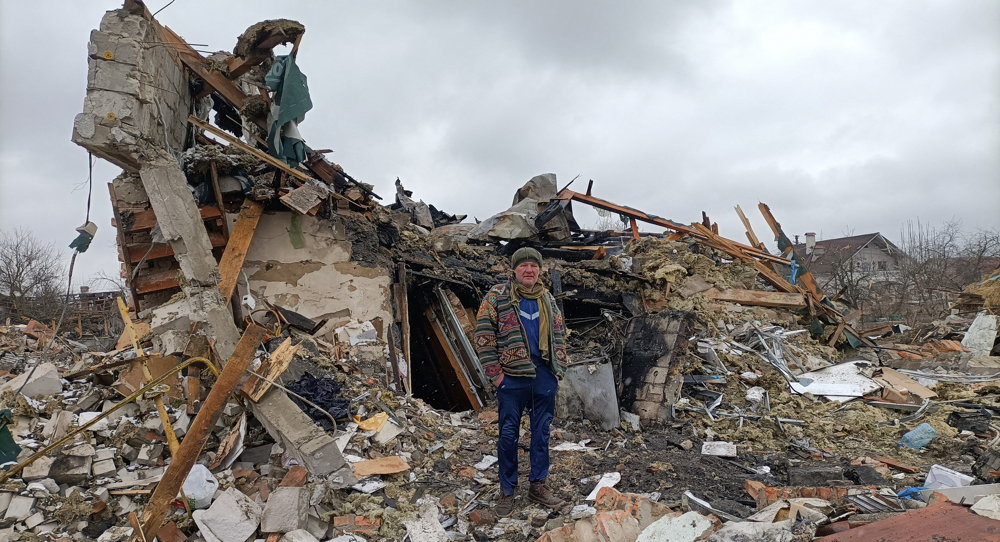
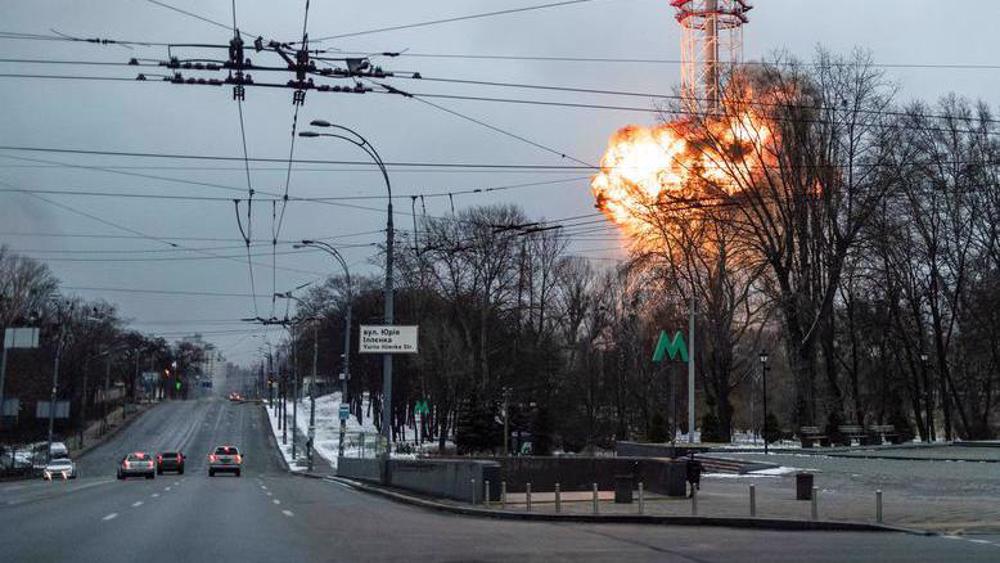
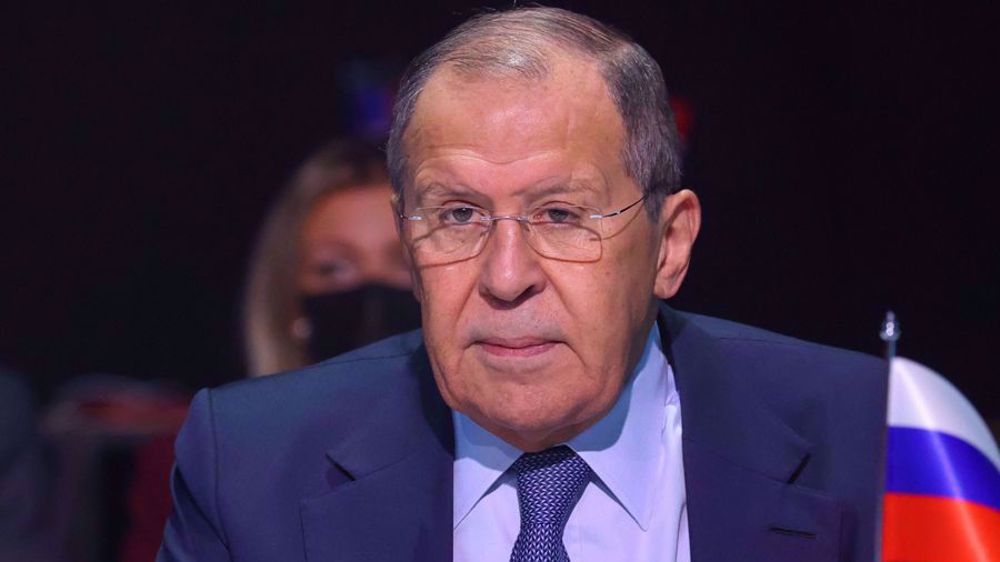

 This makes it easy to access the Press TV website
This makes it easy to access the Press TV website